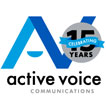
Podcasts come in all shapes and sizes. So, when we talk about how to write a podcast script, of course, there’s no one way to do it. (Then again, there’s no one way to write, well, anything.) But for the purposes of this post, we are going to focus on how to put together a story-based show that includes an interview with a guest, which is a format commonly used by marketers to highlight an organization’s products and expertise.
1. Select a topic and your experts.
Much like any other piece of content you produce for your organization, you’ll begin by establishing a goal for the piece. What message do you want to convey? What story do you wish to tell?
Then, identify the right expert to interview. In addition to considering a person’s credentials and area of expertise as you would for any written piece, you’ll also want to think about how articulate a person is and how comfortable they’ll be with recording.
2. Prepare for your interview.
Research your topic, including your guest’s opinion on the subject. Scan their LinkedIn posts for any mentions and aim to understand the perspective they’re going to bring to the piece. Note if there are any specific stories you want them to tell, messages you want them to convey, knowledge you want them to share, etc.
For my own podcast, I often do pre-interviews. That means speaking with a guest over the phone a week or two before we record. I’ve found this to be helpful for a couple of reasons. First, it helps me understand their perspective so I can maximize our time together and tailor my questions. Second, and even more importantly, it allows me to build rapport. Without a solid rapport, I find I have to spend precious time during the recorded interview making my guest comfortable, which means it takes longer to get to the meat of our conversation. You may or may not need to do this, depending on how well you know your guest and his or her thoughts on a topic.
3. Prep your guest(s).
Remember when we suggested interviewing a subject matter expert who’s well-spoken? Even some of the most articulate experts can get nervous when they hear the words “recording in progress.” One way to help them to feel comfortable is to let them prepare for your interview.
That doesn’t mean you have to give guests specific questions ahead of time; after all, you don’t want them to sound overly rehearsed. But you should share with guests the topics you’ll be covering and a specific question or two as an example.
In my experience, a well-prepped guest speaks more eloquently and confidently, providing you with better content that your audience will appreciate — and isn’t that the point?
4. Record your interview, and order a transcript.
Now it’s time to conduct your recorded interview. Get advice on upping your interview game and download our interview template for help with the process.
When you’re done, have your interview transcribed. (We love Rev, but there are tons of options out there.) This will make the next step immeasurably easier — not to mention make the editing process go faster, too. Which reminds me: Be sure to pay for timestamping; your sound engineer/editor will thank you later.
5. Sift through the transcript.
Now it’s time to identify the parts of your interview you want to use in your show. We go through and highlight the best quotes so we can clearly see how much material we have to work with. Are there whole chunks of your conversation that are fit to include or just selected excerpts from your guest?
What you decide to do here will depend on the quality of the interview and the style and length of your show. I aim to keep my personal podcast episodes under 30 minutes. But often, my recorded interviews are an hour long, so a lot of what I’m doing here is identifying the most important and interesting information my guest shared.
6. Write to fill in the gaps.
In contrast to writing an article in which you’ll write and then add quotes from your sources as supporting material, with a podcast, you’ll do the opposite. Begin with the interview excerpts and write around them. Script an introduction for the episode, transitions between excerpts and a conclusion that will tie the show together.
For example, perhaps your guest told a great story about how she was able to play golf again after having a partial hip replacement. You’ll probably want to write a scripted introduction explaining what partial hip replacement is and who is a candidate for the procedure. Perhaps at the end, you’ll include information about your hospital’s joint replacement program and what someone can expect when they make an appointment.
You’ll also want to revisit the questions you asked during the recorded interview to make sure they still match up. As we all know, sometimes the best anecdotes come from an aside (or complete tangent). You can script a lead-in or question to set up your guests’ answers.
Lastly, you’ll put all of the written elements (scripted and guest quotes) into a single document, and make sure it all flows. Record your voiceovers and package everything up for your editor, and you’ll be saying, “That’s a wrap!” in no time.
Podcast script checklist
What does it take to write an engaging podcast script? Be sure to do these things:
- Determine your topic and identify a story to tell.
- Select a guest to interview.
- Research your topic — and your guest.
- Conduct a pre-interview to establish rapport.
- Prep your subject (but don’t provide so much information they over-prepare).
- Record your interview.
- Order a transcript (with timestamps).
- Highlight the parts of the interview you wish to use.
- Script an introduction, conclusion and transitions between recorded quotes.
- Package it all up, and make sure it flows.
